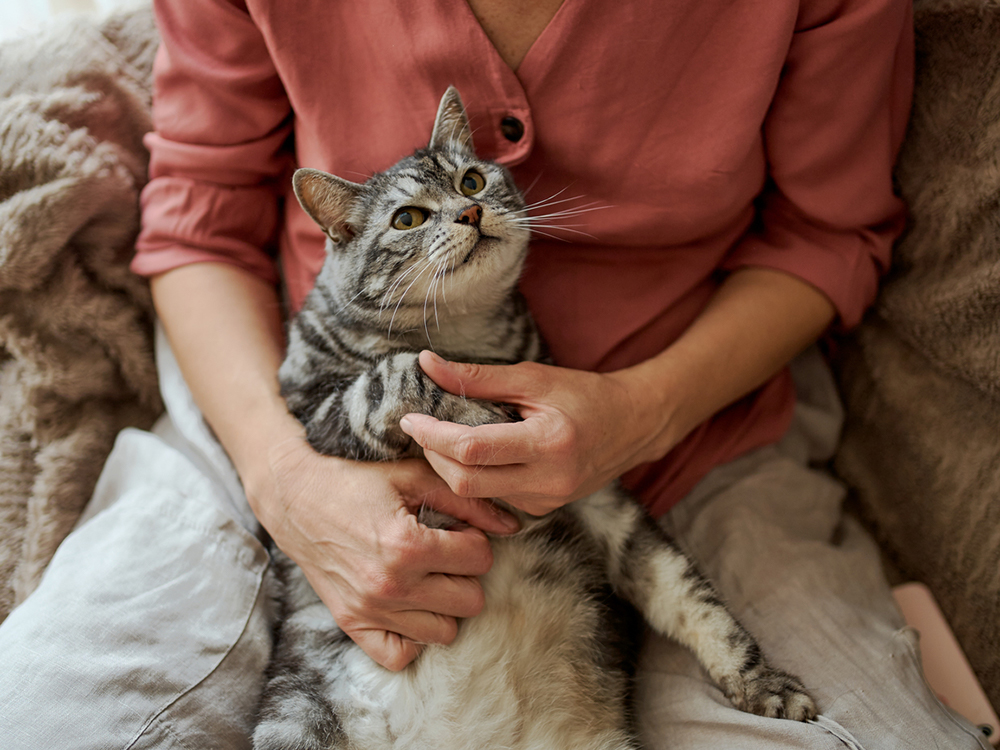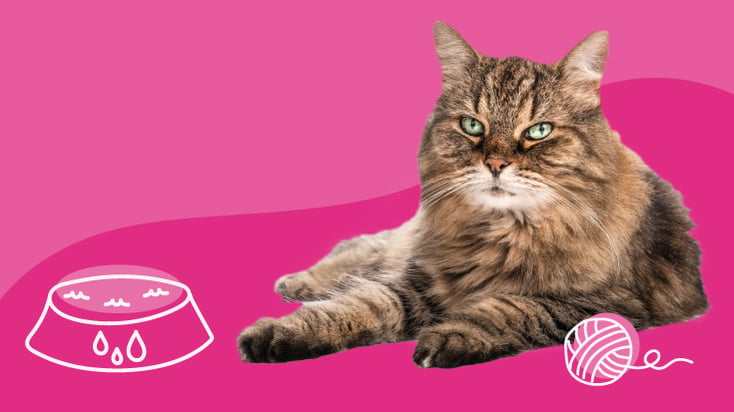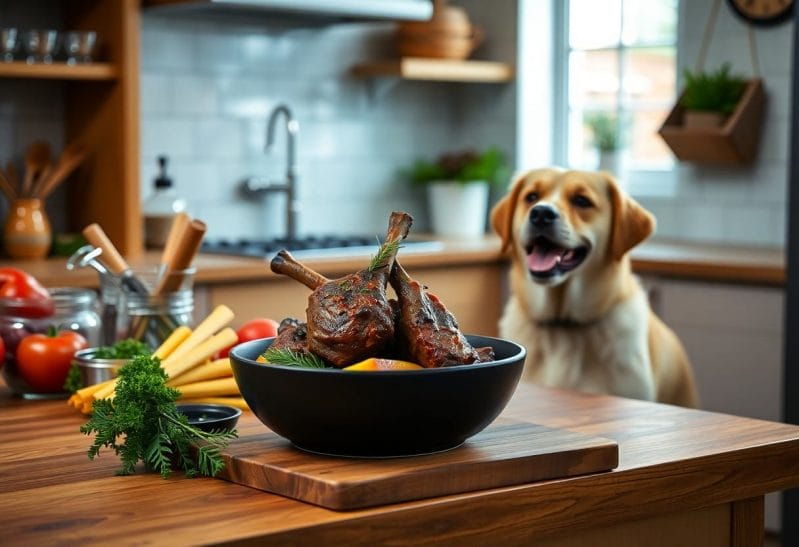There’s no denying that your senior cat holds a special place in your heart. As your feline companion ages, their care needs evolve. In this informative blog post, you will discover important tips for maintaining the health and happiness of your older cat. By following these expert guidelines, you can ensure that your beloved furry friend enjoys their golden years to the fullest.
Key Takeaways:
- Regular Vet Visits: Regular check-ups are crucial for monitoring your senior cat’s health and addressing any issues early on.
- Healthy Diet: Providing a well-balanced diet tailored to senior cats’ needs can help maintain their weight and prevent common health issues.
- Comfortable Environment: Creating a comfortable and safe environment for your older cat, with easy access to food, water, litter boxes, and cozy spots for rest, can improve their quality of life.
Nutrition and Diet
The Importance of Senior Cat Care for Food
Before stepping into the specifics of senior cat food, it’s important to understand why it’s crucial for your older feline companion. Senior cat food is specially formulated to meet the changing nutritional needs of aging cats. As cats get older, their metabolism slows down, and they might become less active. This means they require fewer calories but still need imperative nutrients to support their overall health and well-being.
Hydration and Water Intake
Importance of ensuring your senior cat stays hydrated cannot be overstated. As cats age, they may become less inclined to drink water, which can lead to dehydration. Dehydration is a common issue among older cats and can exacerbate other health problems. Encouraging your senior cat to drink an adequate amount of water is vital in preventing issues such as kidney disease and urinary tract infections.
Senior cats may benefit from wet cat food, as it has a higher moisture content than dry food, aiding in their overall hydration. Placing water bowls in easily accessible areas around your home and potentially investing in a cat water fountain can also help entice your senior cat care to drink more water.
Managing Weight Gain or Loss
Diet plays a crucial role in managing your senior cat’s weight. Weight gain or loss can impact your cat’s health and quality of life as they age. Older cats are prone to weight gain due to decreased activity levels, while others might experience weight loss due to dental issues or underlying health problems. It’s imperative to work with your veterinarian to determine the best diet plan for your senior cat based on their individual needs.
The key is to provide a balanced diet that meets your senior cat’s nutritional requirements while keeping an eye on their weight. This may involve portion control, feeding smaller meals more frequently, or switching to a specialized weight management cat food formula. Regular check-ups with your veterinarian can help monitor your cat’s weight and make necessary adjustments to their diet.
Health Check-Ups and Monitoring
Regular Veterinary Visits
For your senior cat care, regular veterinary check-ups are crucial in maintaining their health and catching any issues early on. It is recommended that older cats see the vet at least twice a year for a thorough examination. During these visits, your vet can assess your cat’s overall health, check for signs of common age-related conditions, and recommend any necessary treatments or changes to their care routine.
Identifying Age-Related Health Issues
Issues such as arthritis, kidney disease, dental problems, and hyperthyroidism are common in senior cats. Early detection of these conditions is key to managing them effectively and improving your cat’s quality of life in their golden years. Keep an eye out for symptoms such as changes in appetite, weight loss, increased thirst or urination, lethargy, and unusual behaviors.
To help identify age-related health issues, you can request specific tests from your vet during check-ups. Blood work, urine analysis, dental exams, and blood pressure monitoring are important tools in diagnosing and managing potential health concerns in older cats. Regular screenings can help catch problems early and allow for timely interventions to keep your senior feline healthy and comfortable.
Monitoring Vital Signs and Behavior
Monitoring your senior cat’s vital signs, such as body weight, temperature, and heart rate, can provide valuable insights into their overall health. Keep track of any changes in these parameters and report them to your veterinarian. Additionally, pay attention to your cat’s behavior, such as eating habits, litter box usage, activity levels, and interactions with you and other pets in the household.

It is necessary to maintain a close connection with your senior cat and be observant of any subtle changes in their daily routines. By staying vigilant and proactive in monitoring your senior cat’s health, you can ensure they receive the best possible care as they age gracefully by your side.
Creating a Comfortable Environment
Providing a Warm and Cozy Space
Cozy nooks and warm, soft bedding are key to keeping your senior cat comfortable. Make sure your older feline friend has a cozy spot to rest that is away from drafts and noise. A soft blanket or cat bed placed near a sunny window can offer a perfect spot for your cat to relax and nap.
Managing Pain and Discomfort
To ensure your senior cat’s well-being, it’s important to monitor and manage any pain or discomfort they may be experiencing. Look out for signs like changes in grooming habits, reduced appetite, or vocalizations when moving. Your veterinarian can help create a pain management plan tailored to your cat’s needs.
It’s important to address any underlying health issues causing pain promptly. Your vet may recommend medication, supplements, or alternative therapies like acupuncture to help alleviate your cat’s discomfort.
Adapting to Sensory Changes
Adapting your home environment to accommodate your senior cat’s sensory changes can greatly improve their quality of life. Older cats may experience diminished senses of sight, smell, and hearing. To help, consider using night lights around the house to assist with navigation in dim light and keeping their litter box in a familiar location.
Changes in your senior cat’s behavior or interactions can be indicators of sensory decline. By observing and making small adjustments in your home, you can help your cat feel safe and comfortable as they age.
Exercise and Stimulation
Many older cats may require a bit of encouragement to stay active and engaged as they age. Exercise and mental stimulation are crucial components of keeping your senior cat healthy and happy.
Encouraging Gentle Exercise
To keep your older cat moving, consider interactive toys such as feather wands or laser pointers. These can encourage light play and help maintain flexibility and muscle tone. Additionally, providing scratching posts or climbing trees can promote stretching and movement, which is beneficial for older cats with arthritis. Remember to keep the exercise gentle and not overly strenuous to avoid any injuries.
Mental Stimulation and Play
With age, cats may become less interested in traditional play activities. However, mental stimulation is crucial for their overall well-being. Try rotating their toys to keep things fresh and engaging. Puzzle feeders or treat-dispensing toys can provide mental challenges and keep your senior cat’s mind active. In addition to physical exercise, engaging your cat’s mind can prevent cognitive decline and improve their quality of life.
Stimulation is vital for senior cats, as it not only keeps them physically active but also mentally sharp. Providing a variety of toys and activities can prevent boredom and help stimulate your cat’s senses. Interactive play sessions, such as feather toys or rolling balls, can keep your older cat entertained and mentally engaged. Additionally, spending quality time engaging with your cat through play can strengthen your bond and provide valuable enrichment for their daily routine.
Reducing Stress and Anxiety
Exercise is a great way to reduce stress and anxiety in older cats. Regular play sessions can help release pent-up energy and promote relaxation. Creating a calm and peaceful environment at home, with comfortable resting spots and hiding places, can also help alleviate stress. If your senior cat is displaying signs of anxiety, such as excessive grooming or hiding, consult your veterinarian for guidance on possible solutions.
Encouraging your older cat to engage in regular physical activity and providing mental stimulation are key components of their care routine. By incorporating gentle exercise, interactive play, and stress-reducing techniques, you can help your senior cat stay healthy and content in their golden years.
Grooming and Hygiene
Brushing and Coat Care
Not all senior cats may be keen on grooming themselves as effectively as they used to when they were younger. Regular brushing can help prevent matting and remove loose fur, keeping your cat’s coat healthy and shiny. Gently brushing your cat can also be a bonding experience, providing you with the opportunity to check for any lumps, bumps, or changes in their skin condition.
Nail Trimming and Paw Care
Carefully trimming your senior cat’s nails is necessary for their comfort and well-being. Overgrown nails can be painful and may even cause difficulty walking. If you are unsure about how to trim your cat’s nails, it’s best to consult your veterinarian or a professional groomer for guidance. Additionally, inspecting your cat’s paws regularly for any signs of injury or infections is important in maintaining their overall hygiene.
Avoid cutting the quick, the pink part inside the nail, as it is sensitive and can bleed if cut. If you are unsure or uncomfortable trimming your cat’s nails, ask your veterinarian or a professional groomer for a demonstration, as improper trimming can be painful for your cat.
Dental Health and Oral Care
Any foul smell coming from your senior cat’s mouth or difficulty eating could be signs of dental issues. Regular dental check-ups are vital, as tooth decay and gum disease can lead to more severe health problems if left untreated. Brushing your cat’s teeth can be beneficial in preventing dental issues, although it may take time for your cat to get used to this routine.
Regular dental cleanings performed by your veterinarian can help maintain your senior cat’s oral health. Your vet may also recommend dental treats or special food designed to support dental health, so be sure to inquire about what options are available for your cat.
Socialization and Interaction
All cats, regardless of age, benefit from socialization and interaction. This is especially important for senior cats, as they may become more sedentary and less active as they age. Spending quality time with your senior cat can help keep them mentally stimulated and emotionally happy.
Socialization: Spending Quality Time with Your Senior Cat
Interact with your senior cat through playtime, grooming, and cuddling. Engage them with toys that encourage movement and mental stimulation. Regular grooming sessions can also provide a bonding experience and help you monitor your cat’s overall health. Additionally, spending quiet moments cuddling or petting your senior cat can be comforting and reassuring for both of you.
Interaction: Managing Multi-Cat Households
Managing a multi-cat household can be a bit more complex when you have a senior cat. Younger cats may have more energy and want to play, which could annoy or upset your senior cat. Make sure your senior cat has a safe space they can retreat to if they need a break from the other cats. Additionally, provide multiple feeding stations and litter boxes to minimize competition and reduce stress among the cats. Regularly monitor their interactions to ensure a harmonious living environment.
Quality time with your senior cat is vital for their overall well-being. By engaging in meaningful interactions and providing them with comfort and security, you can help alleviate any anxiety or loneliness they may experience in their old age.
Interaction: Providing Emotional Support
Another way to support your senior cat’s emotional well-being is by creating a calm and peaceful environment. Cats are sensitive to changes in their surroundings, so try to maintain a consistent routine to help them feel secure. Providing cozy resting spots, soft bedding, and a quiet place to retreat to can all contribute to your senior cat’s emotional comfort. Additionally, offering gentle words, soothing tones, and affectionate gestures can reassure your senior cat and strengthen your bond with them.
Conclusion

Considering all points mentioned, it is important to pay close attention to your senior cat’s health and well-being. By providing proper nutrition, regular veterinary check-ups, a comfortable living environment, and mental and physical stimulation, you can help ensure that your older cat enjoys a happy and healthy life. Remember to be patient and understanding as your feline companion ages, and always consult with your veterinarian if you have any concerns about your senior cat’s health.
By following the tips outlined in this article, you can help your older cat age gracefully and maintain a good quality of life. Remember to show your senior cat love and compassion, and appreciate the special bond that you share with your feline friend. With the right care and attention, your senior cat can continue to bring joy and companionship to your life for years to come.
Q: Why is senior cat care important?
A: Senior cat care is important because older cats require special attention to maintain their health and happiness. As cats age, they are more prone to health issues such as arthritis, dental problems, and kidney disease. By providing proper care, you can help your senior cat live a longer and more comfortable life.
Q: What are some tips for keeping my older cat healthy?
A: Some tips for keeping your older cat healthy include regular veterinary check-ups, providing a balanced diet suitable for senior cats, keeping them active with playtime and exercise, and monitoring any changes in behavior or appearance that may indicate a health issue.
Q: How can I keep my senior cat happy in their later years?
A: To keep your senior cat happy in their later years, make sure to provide them with a comfortable and cozy living environment, plenty of affection and attention, mental stimulation with toys and interactive play, and a consistent routine to help them feel secure and safe.











